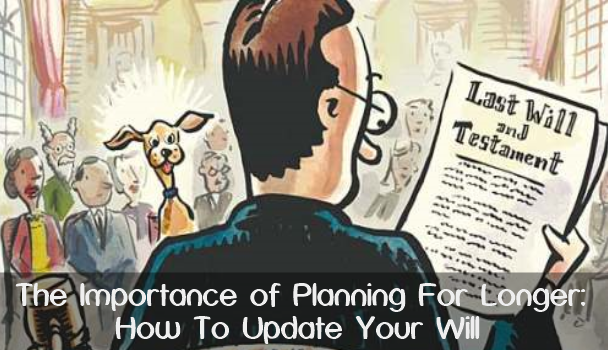For everyone that has already made a Will, the need to update it is an important and constant process. Wills go out of date with the changing circumstances of your life and the need to check, update and change the Will is nearly as important as writing one in the first place.
If you don’t have a Will, you will die ‘intestate’ and you risk your estate being divided according to the law rather than your distinct wishes.
Not only this, you also risk your family going through a lengthy legal process making their stresses concerning the bereavement even more traumatic.
Similar risks are present for those who fail to update their Will. The pension’s crisis has made it starkly apparent that we’re all living much longer than in the past.
This has had revolutionary effects on the Will writing business as the circumstances when a Will was drawn up can be dramatically different at the point of death.
Divorce rates have gone up and many of you now have second families; you may have spent or sold large amounts of your estate to maintain your own lifestyle and you’ll need to make this clear in your Will.
Perhaps you’ve had another child/grandchild, you’ve moved house, or the named executor of your Will has died or simply been replaced.
The person you wish to execute your Will at one point in your life may not be the same a few years later.
There are various reasons for updating or changing a Will and you need to keep your document right up to date. Seek advice from a reputable lawyer who can write a Will from scratch and provide sound information on updating.
Perhaps you’ll overwrite your old Will entirely and completely scrap the former document.
This can be done quite simply, but it’s also common for someone to make a ‘codicil’. A codicil is a minor amendment which must be both signed and witnessed.
Remember that life is complicated these days and people’s home lives are much more prone to change.
Most people move houses at least a couple of times and as well as marriage being much more subject to divorce, the institution also appears far less common amongst the under 40s.
The nuance and scope for a Will is therefore much broader than it was in the past where spouses and kids were the natural and primary beneficiaries.
There are also issues with things like inheritance tax and the way you might wish to make charitable donations.





